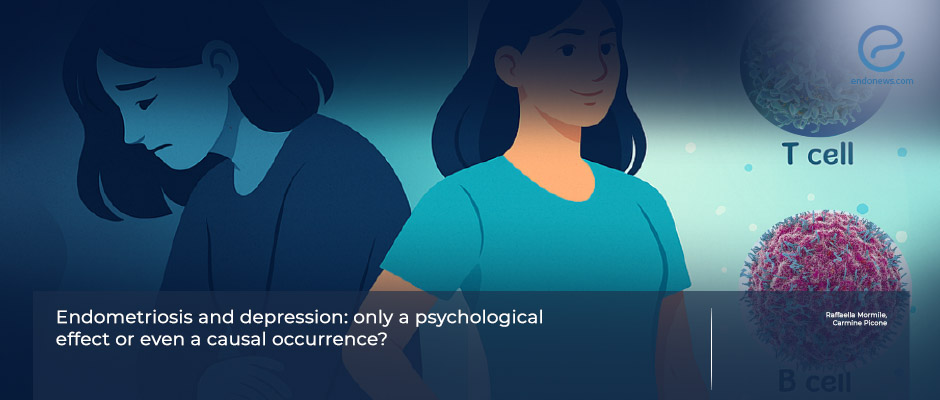Which Comes First: Endometriosis or Depression?
Apr 9, 2025
A Shared Immune Dysregulation May Link Depression and Endometriosis on a Common Immunological Basis
Key Points
Highlights:
- Endometriosis, a globally prevalent condition, is associated with significant psychological comorbidities, particularly affecting mental health.
Importance:
- Depression appears to be the most common and clinically significant psychological consequence in women with endometriosis.
What's done here:
- This short scientific communication in the form of letter to the editor, aims to raise awareness of a potential shared immune-mediated etiopathogenesis underlying depression in endometriosis patients.
Main key features:
- Dysfunction of regulatory T cells (Tregs), known to aggravate endometriosis, may also contribute to depressive symptoms through immune dysregulation.
- Women with endometriosis should be informed of their increased risk for major depression to ensure timely psychological support and intervention.
Lay Summary
A short communication in the format of letter to the editor, recently published in the Archives of Gynecology and Obstetrics highlights the potential immunological link between endometriosis and depression.
Endometriosis is a highly prevalent gynecological disorder characterized by chronic inflammation and immune dysregulation, particularly in response to ectopic endometrial tissue. Depression, a common and debilitating comorbidity in women with endometriosis, is similarly associated with immune dysfunction and chronic systemic inflammation.
Emerging evidence suggests a shared immunopathogenic basis between the two conditions. Myeloid-derived suppressor cells (MDSCs), known to impair T cell responses, are elevated in both endometriosis and major depression. Additionally, regulatory T cell (Treg) dysfunction has been implicated in the progression of endometriosis and may contribute to immune-related mechanisms underlying depression.
Together, these findings support the hypothesis that endometriosis and depression may not merely coexist as comorbidities but may arise through overlapping pathological immune pathways. The authors emphasize the need for further research to elucidate these shared mechanisms and explore unified therapeutic strategies.
In the interim, it is essential to counsel women with endometriosis on their heightened risk for major depressive disorder to ensure timely psychological support and integrated care.
Research Source: https://pubmed.ncbi.nlm.nih.gov/39831984/
endometriosis depression immune dysfunction

